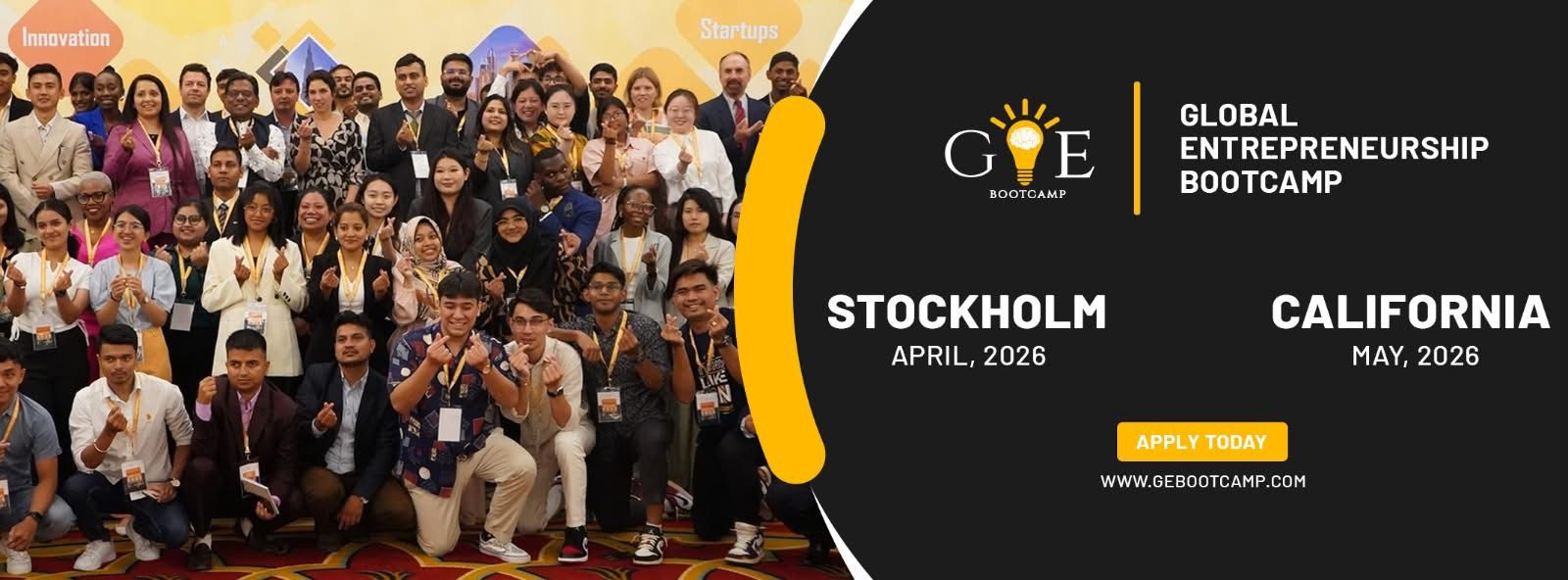
Call for Innovative Ideas: WEkEO Hackathon Program 2023
Details
Applications are open for the WEkEO Hackathon Program 2023. The WEkEO Hackathon aims to support creative and data-skilled people in conceiving tools to improve climate resilience and positively impact the environment. During the hackathon, teams will be able to unlock all the WEkEO platform features to develop their projects, guided by coaches and mentors.
Addressing 1 of the 5 challenges defined below, the teams should use at least 2 sources of data available to develop projects such as (but not limited to):
See More; How to Get Permanent Residency in Canada?
- Innovative ways of visualizing data
- New dashboards of indicators
- What-if scenarios and tools to simulate scenarios
- Using data to raise awareness
Challenges from WEkEO Hackathon Program
The Copernicus data available on WEkEO can help in many regards to support decision-making, in the implementation of EU directives related to climate change and the achievement of the SDGs. In this hackathon, participants are challenged to come up with innovative ideas within the coastal, arctic, health and energy sectors, proposing projects which would support effective and sustainable policymaking, management, planning.
- Coastal: Coastal environments are facing increasing pressures, resulting particularly from the ever-growing population living along the coasts. How to properly plan the different human activities taking place along the coasts, while conserving and protecting coastal ecosystems and biodiversity? How to manage and monitor coastal hazards (erosion, storm tides, tsunamis), and inform, raise populations’ awareness about these?
- Key Elements: Coastal erosion, Natural hazards prevention, Coastal activities development, Endangered biodiversity and ecosystems, Marine Spatial Planning, Marine Protected Areas
- Arctic: The Arctic is disproportionately exposed to climate change more than any other region in the world in fact. This implies many challenges in the region, including the thawing of permafrost and melting of ice, while there are growing interests/concerns regarding geopolitics and economics: fisheries, shipping, defence and security, and resource exploitation. How can EO data be used to ensure that decision-making and economic development consider the conservation of this unique and vulnerable environment?
- Key Elements: Arctic Warming, Ice Melting, Thawing of Permafrost, Endangered biodiversity and ecosystem, Balancing preservation with economic development and geopolitical interests
- Health: Climate change affects the social and environmental determinants of health. From breathing clean air to accessing drinking water and a reliable food supply. Reducing emissions of greenhouse gases and shifting to sustainable societal behaviours (through sustainable transportation systems, agricultural practices, and energy choices to name a few) can result in improved health. How can they better inform and visualise the deep interlinkage existing between health and the environment – and improve decision-making?
- Key Elements: Air pollution, water, and marine pollution, GHG emissions, chemicals usage, behavioural change
- Energy: Shifting from fossil fuels towards renewable energy is key to addressing the climate crisis, as it generates far lower emissions. Whether we consider solar energy, inland or offshore wind energy, hydropower from waves or tides, or even algae, there are numerous parameters to consider for implementing these. EO data is thus crucial to help assess, explore, and sustainably manage a renewable energy transition and development. How to better analyse opportunities, optimise planning, management, and risk assessment of renewable energy?
- Key Elements: Multiple energy sources, Spatial planning and mapping, cross-data analysis with socio-economic parameters, biodiversity and ecosystems protection
- Wildcard: You have an idea to fight the climate crisis using data that does seem to fit the other challenges? You would like to use data to focus on plastic pollution, reforestation, water conservation transportation sector transition, biodiversity conservation and protection, sustainable food supply chains, climate education, arts, outreach and awareness raising? No worries! The wildcard welcomes all the out-of-the-box thinkers and their innovative projects harnessing data.
- Key Elements: Innovative ideas, environmental thinking, shift, biodiversity conservation, ecosystems, sustainability
Benefits from WEkEO Hackathon Program
- The 3 winning teams will get one-year access to the WEkEO platform paid cloud computing, including the following services:
- Discover datasets
- Download
- Jupyter Notebooks
- Support
- Virtual Machines
- Processing tools
- Free networking (in and out)
- They will also be offered opportunities to pitch their projects in front of various audiences. And will see their project showcased by the organisers, particularly (but not limited to) adding the project as a use-case in the WEkEO Website.
- The following certificates will be issued:
- Certificate of participation: for participants who contributed to a team correctly formed and competing in the hackathon.
- Winner certificates: for the participants who contributed to a team that ranked in the first 3 places.
Eligibility for WEkEO Hackathon Program
- Participation is completely free of charge and open to participants from all European Union (EU) Member States and EU-associated countries.
- Participants from other countries can also join.
Application of WEkEO Hackathon Program
Application deadline is June 21, 2023. The Hackathon will run from June 22-23, 2023.
See More; Commonwealth Youth Peace Ambassadors Network | Call for Country Representatives
Lastly, It is important to visit the official website link found below to access the application form.
Correspondingly, Join us on Telegram for more opportunities!
Similarly, Visit oyaop.com and oyaschool.com for more scholarship opportunities.
Specifications
| Type of Opportunity | Scholarships and Fellowships |
|---|---|
| Deadline | 21 June,2023 |
| Country | USA |
| Open to | All |
| Organizer | WEkEO |
